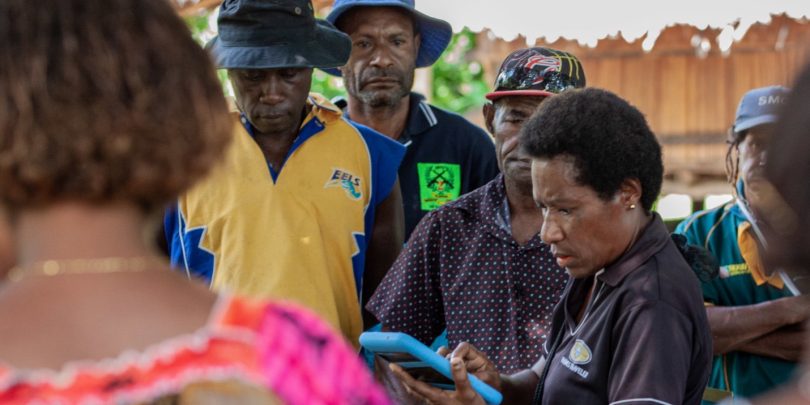The Water for Women Fund has made a major shift over the past two years, focusing on climate resilience in water, sanitation, and hygiene (WASH) systems. This transition builds on the Fund’s commitment to gender equality, disability, and social inclusion (GEDSI) since 2018. During the extension period (2023–2024), the Fund has partnered with 15 Civil Society Organisations (CSOs) and seven Research Organisations (ROs) to implement inclusive WASH projects.
As we approach the final year of this extension, it’s a good time to reflect on how our monitoring, evaluation, and learning (MEL) system has adapted to the challenges of climate resilience.
The Australian Government has invested in targeted WASH programs for over a decade. The sector has developed robust approaches and institutions. Following the COVID-19 pandemic, Water for Women received a two-year extension with an increased emphasis on climate resilience, announced by Minister for International Development Pat Conroy. This aligns with the commitment to climate resilience in the Australian International Development Policy released in 2023, which also reaffirmed the Fund’s ongoing focus on GEDSI.
MEL has been central to the Fund’s ability to adapt. Effective adaptation requires reflection on what’s working and the flexibility to adjust. While not everything in this extension phase is unknown, there is still much to learn about the links between WASH, GEDSI, and climate resilience. We recognise WASH as critical to resilience, but the evidence is still evolving. Our MEL process supports this learning process, helping us work closely with our CSO and RO partners to integrate climate considerations into inclusive WASH practices.
One key lesson from our transition to climate-resilient WASH has been the importance of revisiting “foundational activities” — Theory of Change (ToC) terminology for the basic conditions needed for successful program implementation. At the start of this extension, we re-examined these foundations through climate risk and vulnerability assessments across all projects. This included GEDSI analysis, which helped identify how social vulnerabilities intersect with climate risks within WASH contexts.
By 2022–23, the Fund had been running for five years. During this time, we shifted our focus towards reframing existing challenges and questioning the core assumptions behind our work. This deeper reflection represents “triple-loop learning“, where we questioned our key assumptions and the reasons for investing in inclusive WASH in the first place. To guide this process, we developed a shared Learning Agenda with our partners, exploring how climate risks affect WASH systems and how GEDSI principles remain vital in these changing contexts.
“Double-loop learning,” by contrast, involves using data to assess project performance and make strategic adjustments. We do this regularly, through six-monthly and annual progress reports, as well as in “sense-making” sessions and formal mid-term and final evaluations. Although global WASH indicators, such as those from the WHO/UNICEF Joint Monitoring Programme, feed into Sustainable Development Goal 6, they don’t yet explicitly address climate resilience. Global WASH stakeholders are currently working to incorporate resilience into monitoring systems.
Understanding the contribution of inclusive WASH to climate resilience is complex, given the long-term nature of resilience-building and the uncertainties involved. To address this, we’ve taken a twin-track approach to WASH monitoring, using both targeted and mainstreamed strategies that draw on our experience with GEDSI integration.
MEL is one input for addressing these deeper questions, which are bigger than our program or any one investment. What MEL brings to answering these questions is a type of “practice-based evidence” that can help us understand from projects and practitioners what climate-resilient inclusive WASH looks like in practice. For example, our projects continue to engage in “single-loop learning”, which involves the rapid use of routinely collected, real-time data to inform day-to-day management. This learning is captured in activity reports and quarterly updates, helping track progress.
Overall, the Fund’s transition to a more explicit focus on climate resilience in recent years has prompted us and our partners to reflect on what we have learned to date, which will help us adapt into the future. The process of adapting the MEL system has highlighted the enduring relevance of GEDSI in WASH in a changing climate. Our shared Learning Agenda allows us to explore our foundational assumptions while working together towards transformative change.
Disclosure
Water for Women is funded by the Australian Government Department of Foreign Affairs and Trade (DFAT). The views expressed in this article are the authors’ own and do not necessarily reflect the views of Water for Women, the Australian Government or Water for Women partners.


Leave a Comment